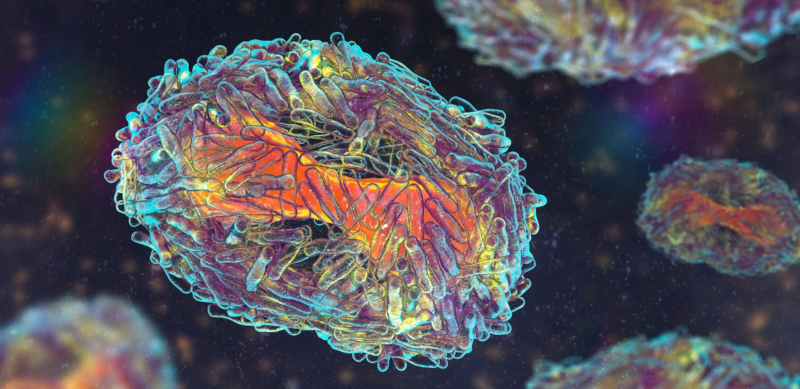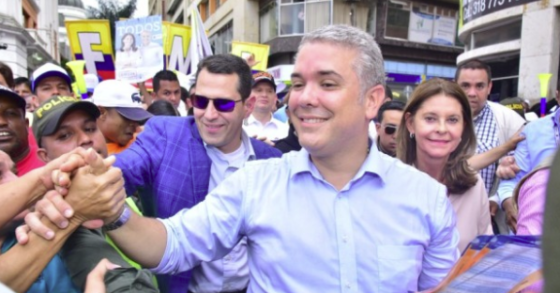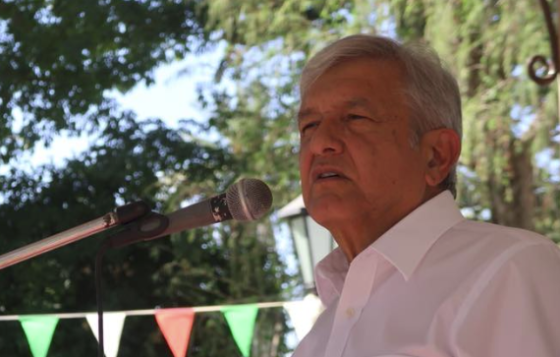Digital Technologies
Throughout Latin America, a digital divide has emerged.
A Daily Publication of The Dialogue
More than 1,800 cases of monkeypox have been reported in Latin America and the Caribbean as of Aug. 2, with Brazil and Peru reporting the highest instances of the disease, according to the U.S. Centers for Disease Control and Prevention. The World Health Organization in July declared the spread of the virus a global health emergency. How much have health care systems in Latin America and the Caribbean improved since the beginning of the Covid-19 pandemic in 2020, and what lessons has the region learned that can help governments address the spread of monkeypox? What countries are best prepared for another medical emergency? What protections have been developed for vulnerable populations, especially the LGBTQ community, which has been disproportionately affected by the monkeypox spread?
Luis Benveniste, regional director of human development in Latin America and the Caribbean at the World Bank: “One of the clearest examples of public health system strengthening during the Covid-19 pandemic has been on molecular testing capacity in several Latin American and Caribbean (LAC) countries, where broad laboratory networks sharing genomic surveillance data have been put in place. However, despite the investments and policy response to the Covid-19 pandemic, underlying weaknesses remain in areas that will be much needed to control monkeypox. For instance, active case finding, contact tracing and isolation was significantly enhanced during the pandemic, but more recently it has been deprioritized in many countries. This is vital for monkeypox response and likely to work well because most transmission occurs when patients have symptoms. Second, ring vaccination for primary or secondary contacts of the infected individual is key. Yet, adequate vaccines are not available in most LAC countries, representing a crucial problem that persists in the region and globally. And third, adequate risk communication is a critical but underappreciated aspect of the monkeypox outbreak response. The focus of communication should be behaviors—not people—that may be fueling the outbreak, which is directly linked to preventing stigma on the LGBTQ community. Science must be the centerpiece of communication to confront misinformation by verifying facts and rumors as well to advocate and train health reporters and the media. Health system resilience in LAC was indeed strengthened in many areas due to Covid-19, but continuity and sustainability of such progress are a central challenge and will be essential to adequately tackle monkeypox in the region.”
Sarah Aiosa, president for Latin America at MSD, known as Merck & Co. Inc. in the United States and Canada: “Among the many lessons learned from the pandemic, perhaps the most important one is the realization that effective and efficient health systems are not only critical for responding to emerging health threats, but also are indispensable for economic growth and social development. Thankfully, in the wake of Covid-19, many governments across the region identified the need to address key health care system gaps, including improvements to infrastructure, education, governance, intersectoral coordination and investment. Despite advancements, Latin America’s public expenditure on health (3.7 percent of GDP) remains far below the 6 percent of GDP target recommended by the Pan-American Health Organization. This chronic underfinancing of health care systems means countries in our region will need to step up their investment in health care in a sustainable way to be prepared for monkeypox or any future health emergencies. Another important lesson from Covid-19 is that governments need to work with the private sector to provide broad and innovative ways to respond to health emergencies and continue to develop resilient, inclusive, sustainable and equitable health ecosystems. Unfortunately, in our region, vulnerable populations continue to struggle to access appropriate, accurate and timely information and care. As members of an inclusive society, we must remain vigilant that monkeypox does not amplify existing inequities further, or inappropriately stigmatize the LGBTQ+ community or any other groups. Public and private sectors, along with civil society, must work together to create inclusive health models and accessible care practices to reach all people across Latin America, regardless of who they are or where they live.”
Antonio Vergara, president and head of Roche Diagnostics in Latin America: “The Covid-19 pandemic put health care at the center of discussions regarding its role in the protection of people and economic development. While health ecosystems in Latin America have made significant progress since then, we still have an opportunity to distill lessons learned from this experience. It is necessary for the private and public sectors to put together their talent, experience and resources to take advantage of innovative diagnostic and care solutions, implement dynamic regulatory frameworks for their adoption and promote interconnected information systems across the region. This will enable the collection and analysis of data to better understand public health emergencies and make timely decisions on the actions required to face them. In this sense, the countries best prepared for a new public health emergency are those that have understood the value of collaborative work to transform their health ecosystems, starting by setting or strengthening permanent prevention and diagnosis programs that contribute to a more efficient decision-making process. Tests for monkeypox are already available, but realities across countries change; therefore, collaboration is what can make diagnostic tests the most effective tool to protect our people, especially those who are more vulnerable. At Roche, we will continue exploring opportunities to foster meaningful partnerships that allow innovation to positively affect people and play a role in preventing a new crisis.”
Mariana Rico, regional medical director at the Americas Health Foundation: “The Covid-19 pandemic, now more than two years old, has deeply affected Latin American countries with millions of cases and deaths. So, the question remains: is the region prepared for another infectious disease outbreak? The answer to this question varies from country to country, but undoubtedly, as a region, we are in a better position today to address the monkeypox emergency than we were for the Covid-19 pandemic in 2020. Monkeypox is different than Covid-19 in terms of resource requirements because it is currently considered a self-limited condition in most cases. Many of the region’s ministries of health have recognized the window of opportunity to contain the outbreaks and have emitted guidelines and information to the general public on how to avoid the spread of monkeypox and what to do if infection is suspected. In Latin America, it is important to keep in mind that accurate differential diagnoses are made with other conditions of regional importance such as varicella, measles and syphilis. In terms of laboratory capacity, Latin American countries have strengthened molecular laboratory infrastructure as a result of the Covid-19 pandemic, which could be useful to diagnose monkeypox once the primers and protocols are standardized in the reference sites. As vaccines and treatments become available, countries will need to expedite regulatory processes to approve their use and prioritize access, especially for vulnerable populations and complicated cases. A key lesson learned from the Covid-19 pandemic is the importance of using evidence-based treatments and interventions. Guidance from infectious disease societies and ministries of health will be crucial.”
 The Latin America Advisor features Q&A from leaders in politics, economics, and finance every business day. It is available to members of the Dialogue’s Corporate Program and others by subscription.
The Latin America Advisor features Q&A from leaders in politics, economics, and finance every business day. It is available to members of the Dialogue’s Corporate Program and others by subscription.
Throughout Latin America, a digital divide has emerged.
Iván Duque, a conservative former senator, on Sunday won Colombia’s presidential runoff election. What does it mean for the country?
Mexicans go to the polls on Sunday, July 1, for the country’s presidential, legislative and local elections. What can we expect?
 In Latin America, Brazil and Peru have reported the highest instances of monkeypox, according to the U.S. Centers for Disease Control and Prevention. // File Photo: Tufts University.
In Latin America, Brazil and Peru have reported the highest instances of monkeypox, according to the U.S. Centers for Disease Control and Prevention. // File Photo: Tufts University.

